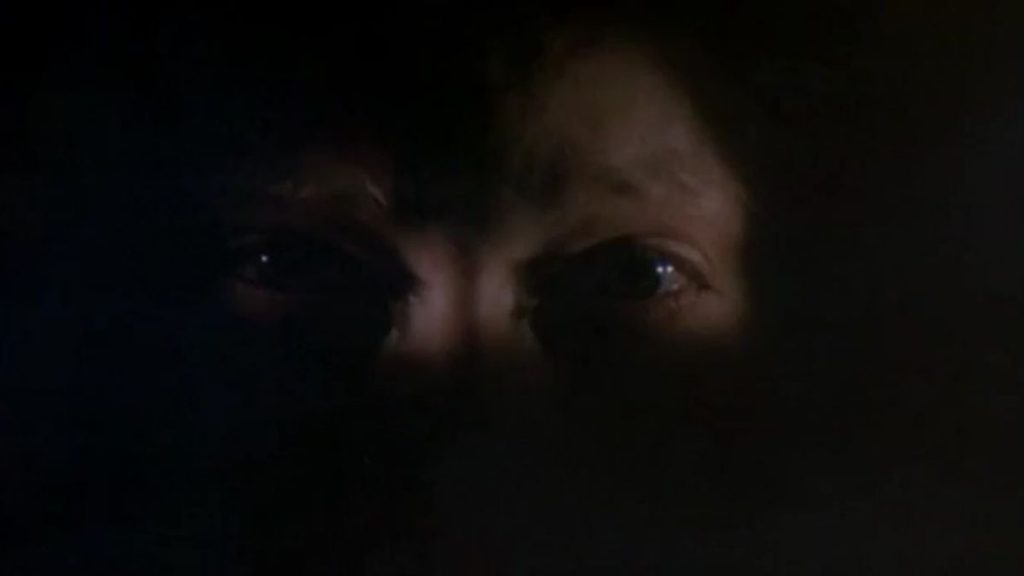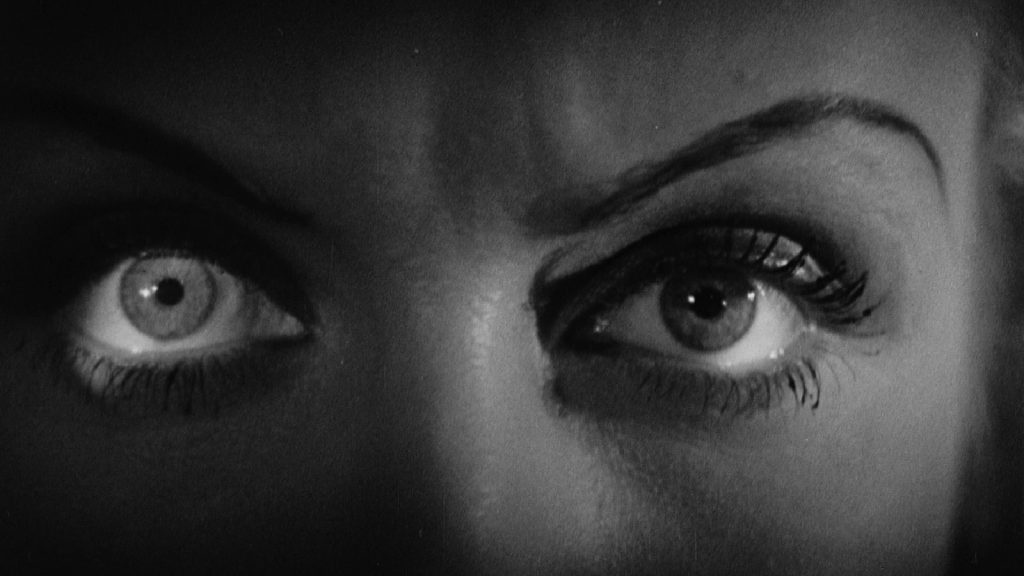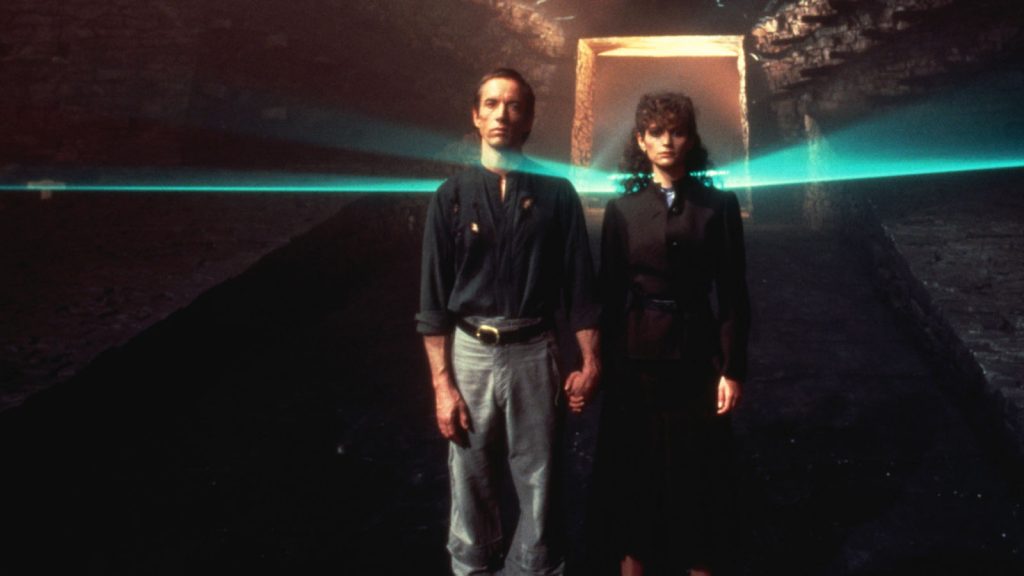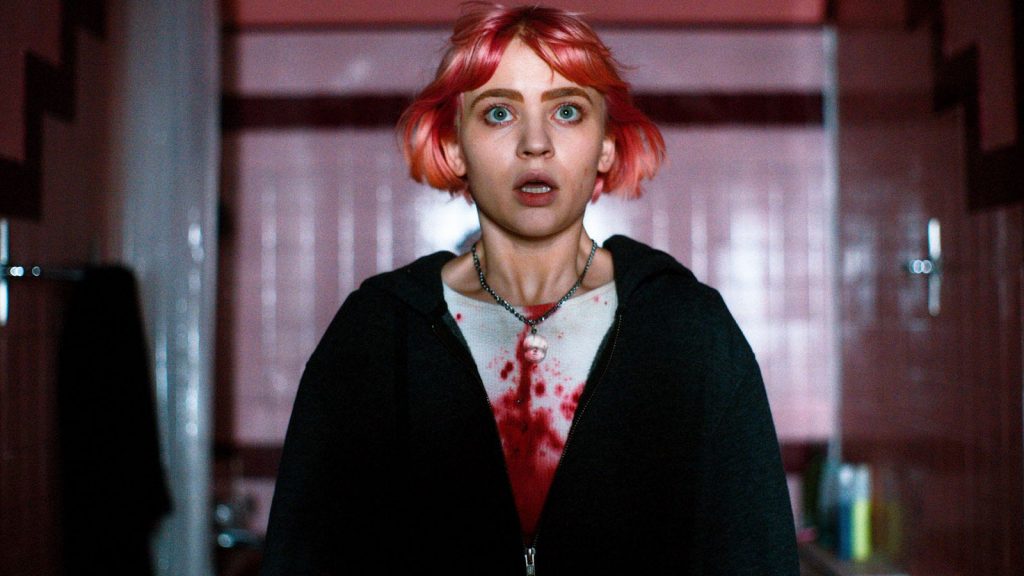Renowned cinematographer William A. Fraker, perhaps best known for lensing Rosemary’s Baby, naturally hired one of the top DPs—László Kovács—to shoot his own film A Reflection of Fear, the second of his three features, and his only directorial venture into horror. Their collaboration resulted in a transfixing work with an unusual, dreamy look, as if filtered through fog, and a spectacularly cinematic setting: a sprawling, desolate estate house by the Canadian seaside, where homeschooled 15-year-old Marguerite (a persuasive 27-year-old Sondra Locke) lives like a prisoner with her overbearing mother (Mary Ure, only 11 years older than Locke at the time) and grandmother (Signe Hasso).
A severely troubled science geek whose closest confidantes are her creepy dolls (never a good sign for one’s sanity, especially when they’re included in profoundly unhinged “conversations”), the ethereally pale Marguerite—equipped with long blonde locks; a whispery, babyish voice; and an intense stare—desperately yearns for the return of her absentee father (Robert Shaw, then married to Ure). But when her wishes come true and he suddenly shows up in town after a decade with his amiable new fiancée (Sally Kellerman) in tow, hoping to secure a divorce from Marguerite’s mom, his presence throws the household into complete disarray—especially when it becomes known that his ex’s willingness to grant his request is contingent upon him agreeing to stay out of his daughter’s life.
Befitting any up-close-and-personal portrait of mental illness, things are not always what they seem—with some plot reveals less than surprising, and one a particular doozy—and people almost immediately start turning up dead. Adapted from prolific mystery writer Stanton Forbes’s fabulously titled 1968 novel Go to Thy Deathbed, A Reflection of Fear is a genuinely unsettling Gothic psycho-thriller that relies more on sheer dread-filled atmosphere than sound logic. Its occasionally head-scratching nature—likely in part due to the film being censored to secure a PG rating—and questionable father-daughter interactions that lean toward the incestuous caused it to sit on a shelf for some time. Filmed in early 1971, it wasn’t given a U.S. release until two years later, and when it did hit theaters—playing a double bill with Freddie Francis’s The Creeping Flesh—audiences, like the studio, didn’t quite know what to make of the movie. Today it’s still barely seen but is referenced by some as an early example of American giallo and an influence on the ’80s slasher classic Sleepaway Camp. A Reflection of Fear’s moody, hallucinatory black magic slowly works its way under your skin—and lingers there for a long time to come.

is a writer, editor, and horror programmer based in New York. She is the editor of Bloodvine and her writing has appeared in publications such as The New York Times, Film Comment, and Rolling Stone.
Certain horror films have a knack for making viewers ask themselves, “Okay, what are we doing here?” and in this regard, 1983’s Sleepaway Camp is a prime example of the...
BY COLIN FLEMING | June 20, 2025
No other horror movie has ever matched the elemental perfection of Jaws. There are the avowed summits of the genre, for sure, but even such cornerstones of screen terror as Psycho...
BY MICHAEL KORESKY | October 31, 2021
Everything is either fractured or in the process of splitting apart. It is the final decade of the Cold War, and Mark (Sam Neill), a spy, returns to West Berlin, the more prosperous...
BY JOSÉ TEODORO | July 8, 2025

This pre-Code offering packs a lot of story into its typically brisk running time, with several plot threads weaving together a (not always successful) tapestry of spooky and criminal doings.
READ MORE >
BY ANN OLSSON | Month 00, 2021

In what could be the fastest-resulting rape revenge movie, a drunken lout brutally forces himself on Ida, the young woman who doesn't return his affections, during a party over Labor Day.
READ MORE >
BY LAURA KERN | Month 00, 2021

Beast is a lot of movies in one package - fractured fairy tale, belated-coming-of-age story, psychological drama, regional horror film - but above all it's a calling card for its leading lady, Jessie Buckley.
READ MORE >
BY LAURA KERN | Month 00, 2021